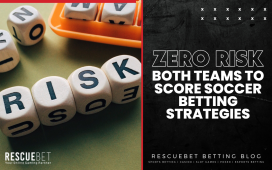Betting is never a specific outcome. Despite all the information you may have at your disposal, past performances, essential metrics, and so on, a bet can still go in any direction. Most bets are designed so that one punter is betting against another, and in such a situation, only one of them can win—implying that the other person loses. The more possible outcomes to bet on, the higher possibility of a punter losing. And that’s not even taking into consideration the house edge. Even worse, punters that manage to win but have nothing to show for it at the end of the day because of one bad bet, a bad losing streak, or inept betting bankroll preservation.
Preserve Your Betting Bankroll
We take a deeper look at how punters can effectively preserve their betting bankroll if they intended to be professional punters for the long-run.
1.Identifying The Right Betting Bankroll
Each punter has different betting requirements, other betting objectives, betting strategies, and most importantly, a different capacity. A punter must determine their betting capacity or how much they can stomach to lose if they lose their entire betting bankroll. If a person has $10,000, it doesn’t make sense for that individual to set the entire amount as his bankroll as these funds would also be required for rent, purchases, emergencies, etc. It’s essential to separate your betting funds from your savings or investment funds. A punter should stick to betting only their bankroll funds.
2. Portioning Your Betting Bankroll
Setting aside how much you’re going to bet in terms of a bankroll helps you in the first step of preserving your betting bankroll. But this doesn’t tell you how much to bet in each round to help you preserve your bankroll for further rounds. If a punter chooses to bet 10% or even 20% of their bankroll, then they could get wiped out clean after a mere 10 or 5 bets depending on how much the punter chooses to bet in each round. A defensive punter must set a much lower fraction of their bankroll to stake on each bet. A safe option would be 1-2% of the punter’s bankroll. If a punter is more adventurous, he may choose to bet 4-6% of his bankroll. What’s more important is that a punter must stick to this fraction for each bet and not get swayed when on a good run or a bad run. A punter ensures that he will always have something to fall back on for later rounds because betting is a marathon and not a sprint.
3. Adopt And Stick To Consistent Strategies
It’s essential that a punter understands, adopts, and then consistently sticks to proven strategies or strategies that work for them. Most punters, novice, or professional, have a hard time sticking to a particular process. A punter may feel like betting more when on a good run, to make up for past losses, to reach a specific goal, etc. And the need for more can jeopardize a punter’s bankroll as it may cause them to deviate from a chosen strategy. A punter may choose to stick to a range (i.e., may up his bet by a small fraction on a good run and consequently decrease it when losing).
A punter also has the option of choosing to adopt a fixed or compounding strategy. For example, a punter may decide to bet 1% of their bankroll of $1000. This, the wager for each round, is $10. A punter may choose to stick with this strategy for a while and bet only $10, or the punter may choose to stick to their 1% wager on their new bankroll. So hypothetically, if the punter won a few bets on the first day or first week, then for the next day or next week, the punter would bet 1% of their new betting bankroll (which maybe $1200 or $800). Thus, a punter’s wager is $12 if he’s winning and $8 if he’s losing.
Don’t forget to also have fun when you place a wager. Winning has its incentives, but nothing is a guarantee in the world of betting and competitive games/sports. Sticking to a strategy helps you preserve your wins and limit your losses at the cost of limiting your successes.
























